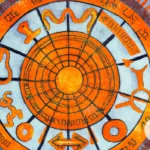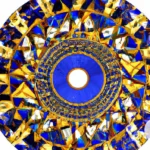Pythagoras
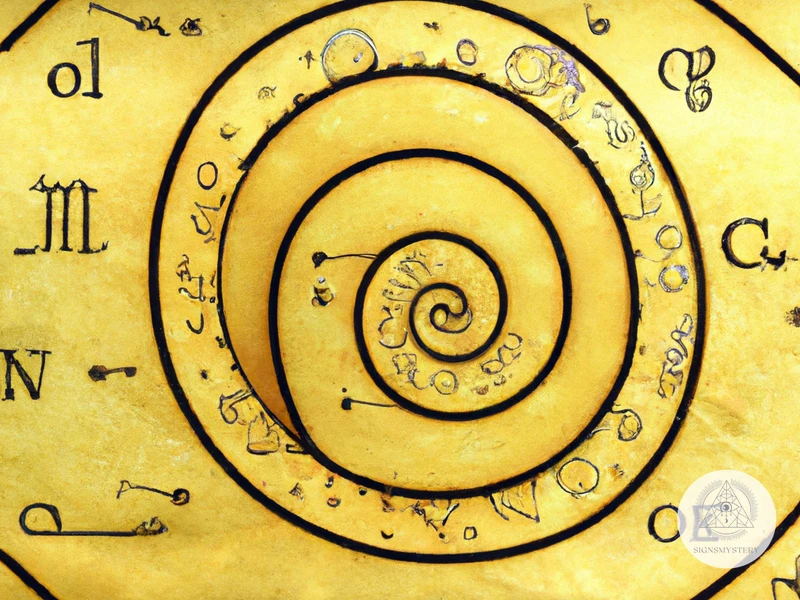
Pythagoras, a Greek philosopher, mathematician, and founder of the Pythagorean school, is widely known for his contributions to mathematics and philosophy. However, not many people are aware that Pythagoras was also deeply fascinated by the power of numbers and their influence on human life. In fact, he is considered one of the earliest practitioners of numerology.
Early Life and Discovering Numerology: Born around 570 BCE on the island of Samos, Pythagoras traveled extensively, immersing himself in the wisdom of different cultures. During his journeys to Egypt and Babylon, he encountered the mystical teachings that would eventually shape his view of numerology. Pythagoras believed that numbers held profound spiritual and cosmic significance, and he devoted his life to unraveling their secrets.
Influence on Mathematics and Philosophy: Pythagoras’ contributions to mathematics are well-known, particularly his famous theorem that states that the square of the hypotenuse of a right-angled triangle is equal to the sum of the squares of the other two sides. However, Pythagoras’ belief in the power of numbers went beyond mathematical equations. He believed that numbers governed the universe and that everything in the world, including human lives, could be understood through numerical symbolism.
Pythagoras’ teachings on numerology emphasized the concept of a “universal harmony” where numbers represented specific qualities and energies. He assigned numerical values to letters of the alphabet, creating a system known as Pythagorean numerology, which was widely used for divination and character analysis.
Pythagoras’ fascination with numbers extended to his philosophical teachings as well. He believed that the principles of mathematics and numbers were intertwined with the nature of reality, forming the foundation of his metaphysical and ethical beliefs.
+
Napoleon Bonaparte
Napoleon Bonaparte, the renowned French military and political leader, may not be the first name that comes to mind when thinking about numerology. However, Napoleon had a keen interest in the mystical aspects of numbers and believed in their influence on his decision-making and personal life.
Numerology in Decision-Making: Napoleon was known for his strategic prowess and calculated approach to warfare. It is believed that he incorporated numerological principles into his military strategies, seeking to gain an advantage based on the numerical significance of dates, names, and other factors. By analyzing the numerical values associated with various elements of his campaigns, Napoleon believed he could predict outcomes and make more informed decisions on the battlefield.
Symbolism in Personal Life: Numerology also played a role in Napoleon’s personal life. He sought guidance through the interpretation of numbers, believing they held clues about his fate and destiny. For instance, Napoleon’s interest in numerology led him to consult with a numerologist to determine the most auspicious date for his coronation as Emperor of the French.
Napoleon’s fascination with numerology reflects his belief in the mystical forces that could shape his destiny. Whether using numerology in decision-making or seeking spiritual guidance, Napoleon recognized the potential power that numbers held in influencing his life.
+
Queen Elizabeth I
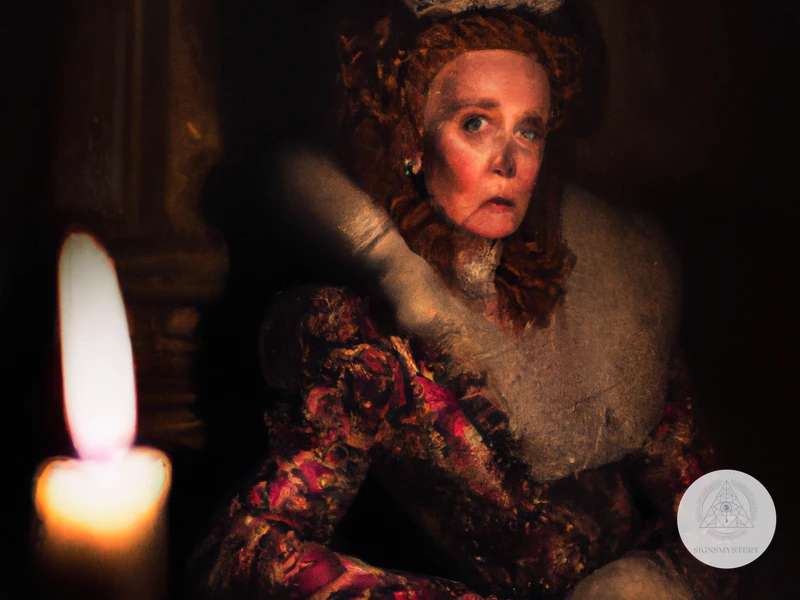
Queen Elizabeth I, one of the most influential monarchs in English history, is renowned for her political savvy and leadership during the Elizabethan era. While her accomplishments are widely recognized, fewer people are aware of the role that numerology played in her life and political strategy.
Numerology and Political Strategy: Queen Elizabeth I, born on September 7, 1533, believed in the mystical power of numbers and astrology. She understood that numbers held symbolic significance and sought guidance from numerologists to make strategic decisions. Elizabeth I often consulted with her advisors to determine auspicious dates for important events such as the signing of treaties or the timing of military campaigns. Numerology helped her gain insight into the potential outcomes and align her actions with favorable cosmic energies.
Spiritual Significance: Numerology was not merely a tool for political maneuvering for Queen Elizabeth I; it also held spiritual significance for her. She saw numbers as representations of divine principles and used them to assert her authority as the religious head of England. Elizabeth I was known for using complex numerological symbols and imagery in her portraits and royal seals, reinforcing her divine right to rule and divine protection.
Queen Elizabeth I employed numerology in selecting royal titles and even in her personal signature. The numerical values of certain letters were carefully calculated to align with her desired intentions and symbolize specific traits she wanted to embody.
Albert Einstein
Albert Einstein, arguably one of the greatest scientific minds in history, revolutionized our understanding of the universe with his theory of relativity. However, what many people may not know is that Einstein held a deep interest in numerology and its connection to the harmony of the cosmos.
Numerology and Science: Einstein considered numbers to be the language of the universe, and he believed that unlocking their secrets could lead to a deeper understanding of the natural world. While he is best known for his groundbreaking work in physics, Einstein recognized the inherent connection between mathematics, numbers, and scientific exploration.
Beliefs on Universal Harmony: Einstein’s fascination with numerology stemmed from his belief in the interconnectedness and inherent harmony of all things in the universe. He saw mathematics and numbers as the underlying fabric that wove everything together, providing an elegant and unified explanation for the complexities of nature.
Einstein’s studies in numerology were not limited to academic pursuits alone. He sought to apply these principles to his own life, aiming for a balance between mind, body, and spirit. He believed that by aligning oneself with the cosmic energies symbolized by numbers, individuals could attain a greater sense of peace, harmony, and well-being.
While Einstein’s work in numerology may not have gained the same recognition as his scientific achievements, his belief in the significance of numbers offers us a glimpse into the multifaceted nature of his genius.
+
Conclusion
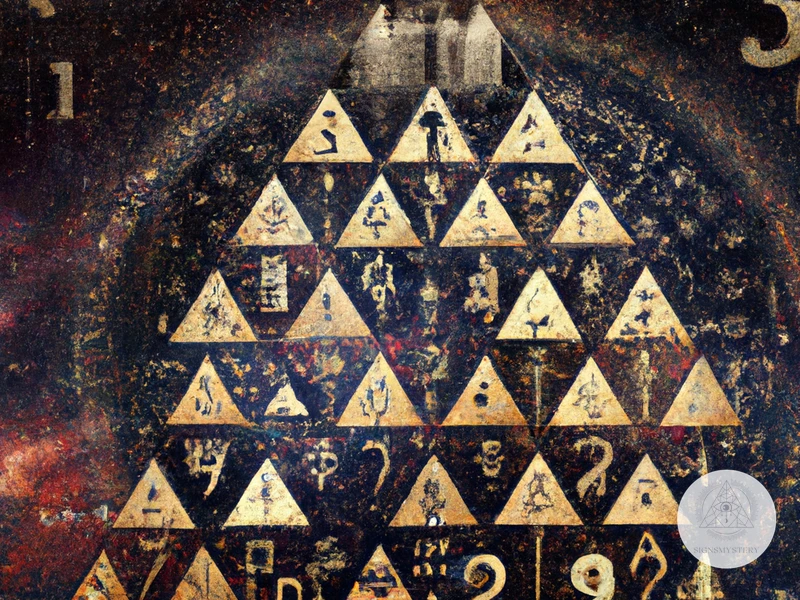
Conclusion:
Throughout history, famous figures such as Pythagoras, Napoleon Bonaparte, Queen Elizabeth I, and Albert Einstein have demonstrated a deep interest in numerology and its applications. These individuals recognized the significance of numbers, not only in mathematics and science but also in personal decision-making, spirituality, and political strategy.
The influence of numerology on these renowned historical figures highlights the enduring appeal and relevance of this ancient practice. Numerology provides a unique lens through which to view the world, offering insights into the hidden meanings behind numbers and their impact on our lives. Whether it is Pythagoras finding harmony in numerical symbolism, Napoleon using numerology to guide his decisions, or Queen Elizabeth I utilizing numerology in political strategy, these figures demonstrate how numerology has played a role in shaping the destinies of influential individuals.
The exploration and understanding of numerology continue to captivate scholars and spiritual seekers alike today. By delving into the secrets and symbolism of numbers, individuals can gain a deeper understanding of themselves, their relationships, and the world around them.
As we continue to uncover the connections between numbers and various aspects of life, the study of numerology offers a fascinating journey of self-discovery, personal growth, and spiritual insight. Whether one seeks to understand the psycho-benefits of numerology, heal chakra imbalances, or explore their life path, numerology provides a powerful tool for self-reflection and transformation.
Frequently Asked Questions
1. How did Pythagoras contribute to the field of mathematics?
Pythagoras is famous for his theorem in geometry, which states that in a right-angled triangle, the square of the length of the hypotenuse is equal to the sum of the squares of the other two sides.
2. What is Pythagorean numerology?
Pythagorean numerology is a system developed by Pythagoras where numerical values
Subscribe to Our Newsletter
Sign up to receive the latest news and updates.
3. How did Pythagoras discover numerology?
During his travels to Egypt and Babylon, Pythagoras encountered mystical teachings about the power of numbers. This sparked his fascination with numerology, and he dedicated his life to its study.
4. What does numerology believe about the significance of numbers?
Numerology believes that numbers hold unique energies and vibrations, and they can provide insights into various aspects of life, such as personality traits, relationships, and life paths.
5. Did Pythagoras incorporate numerology into his philosophical teachings?
Yes, Pythagoras believed that the principles of mathematics and numbers were fundamental to understanding reality. He connected numerology to his metaphysical and ethical beliefs, seeing numbers as a key to universal harmony.
6. How did Pythagorean numerology influence ancient divination practices?
Pythagorean numerology provided a framework for ancient divination practices. By assigning numerical values to letters, diviners could interpret the numerical patterns in a person’s name or birthdate to gain insights into their character and destiny.
7. Is Pythagorean numerology still used today?
Yes, Pythagorean numerology is still practiced today. Many people use it as a tool for self-discovery, gaining insights into their strengths, weaknesses, and life purpose based on the numerical values associated with their names and birthdates.
8. Did Pythagoras believe that numbers held spiritual significance?
Yes, Pythagoras firmly believed in the spiritual significance of numbers. He saw them as representations of divine principles and cosmic energies that governed the universe.
9. How did Pythagoras influence the concept of universal harmony?
Pythagoras believed that numbers were the building blocks of the universe and that they harmonized with each other in a grand symphony. He saw the interconnectedness of numbers as a reflection of the interconnectedness of all things.
10. Did Pythagorean numerology have any practical applications in Pythagoras’ time?
Yes, Pythagorean numerology was used for various practical purposes in Pythagoras’ time. It was employed in fields such as medicine, astrology, and decision-making, as people believed that numbers held the key to understanding and influencing different aspects of life.
References
Frequently Asked Questions
1. How did Pythagoras discover Numerology?
Pythagoras, the ancient Greek philosopher, is said to have discovered numerology while exploring the relationships between numbers and the natural world. He believed that numbers held a mystical and divine significance and could reveal hidden knowledge about the universe.
2. What was the influence of Numerology on Pythagoras’ mathematics and philosophy?
Numerology played a significant role in shaping Pythagoras’ mathematical and philosophical thinking. He believed that numbers were the building blocks of reality and that they held the key to understanding the mysteries of the universe. Pythagoras used numerology to explore concepts such as proportion, harmony, and balance in both mathematics and philosophy.
3. How did Napoleon Bonaparte use Numerology in his decision-making process?
Napoleon Bonaparte, the renowned French military leader, is said to have used numerology as a guide in his decision-making process. He believed that numbers could provide valuable insights into potential outcomes and help him make strategic choices. Napoleon often consulted numerologists to analyze the numerical significance of important events or decisions.
4. What role did Numerology play in Napoleon Bonaparte’s personal life?
Numerology also played a symbolic role in Napoleon Bonaparte’s personal life. He believed that certain numbers had specific meanings and could influence his destiny. For example, he considered the number seven to be lucky and often made decisions based on its significance.
5. How did Queen Elizabeth I use Numerology in her political strategy?
Queen Elizabeth I, the influential English monarch, was known to utilize numerology in her political strategy. She believed that certain numbers held power and significance, and she employed them strategically in her reign. Numerology helped shape her decisions on matters such as succession, alliances, and even naming important buildings.
6. What was the spiritual significance of Numerology for Queen Elizabeth I?
For Queen Elizabeth I, numerology had a spiritual significance. She believed that numbers could reveal divine messages and guidance for her rule. Numerology provided a framework through which she sought to understand her role as a monarch and make decisions that aligned with her spiritual beliefs.
7. How did Albert Einstein incorporate Numerology into his scientific work?
Albert Einstein, the renowned physicist, did not directly incorporate numerology into his scientific work. However, he recognized the beauty and harmony of numbers in the universe. Einstein believed in the existence of a universal order and saw the relationships between numbers as a reflection of this cosmic harmony.
8. What were Albert Einstein’s beliefs about universal harmony and Numerology?
Albert Einstein viewed numerology as a glimpse into the underlying order of the universe. He believed that numbers revealed patterns and connections that transcended individual disciplines. Einstein saw the study of numerology as a way to unveil the mysteries of existence and advance our understanding of the universe.
9. Who were some other famous figures in history who practiced Numerology?
Aside from Pythagoras, Napoleon Bonaparte, Queen Elizabeth I, and Albert Einstein, there were other notable figures in history who practiced numerology. Some examples include Leonardo da Vinci, who used numerology in his artwork, and Johann Wolfgang von Goethe, who incorporated numerological symbols into his literary works.
10. How can Numerology be applied in our modern lives?
Numerology continues to be used and embraced by many individuals today. It can be applied in various ways, such as gaining self-awareness, making decisions, and understanding personal relationships. By examining the numerical significance of names, birthdates, and life events, individuals can gain insights into their strengths, weaknesses, and life paths.




